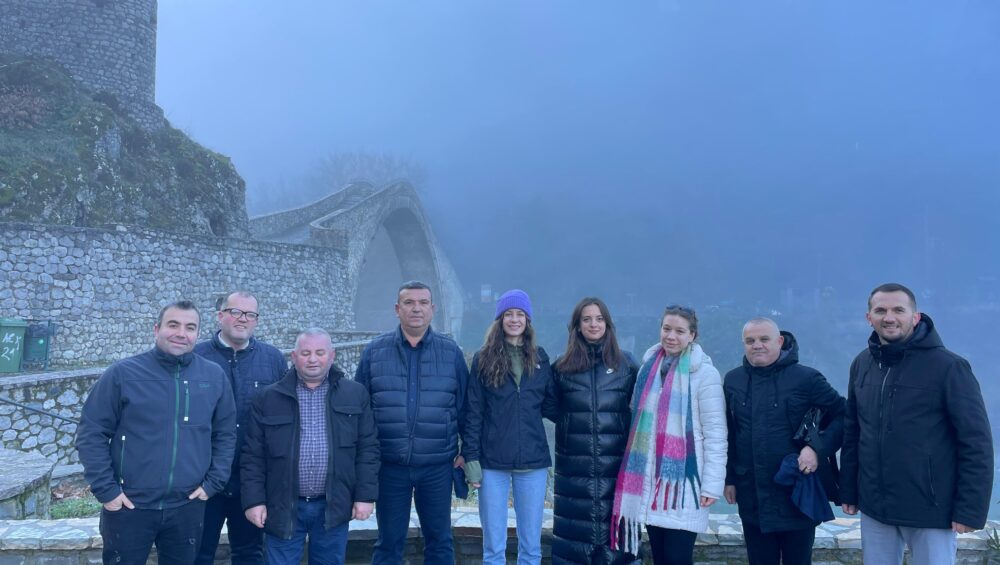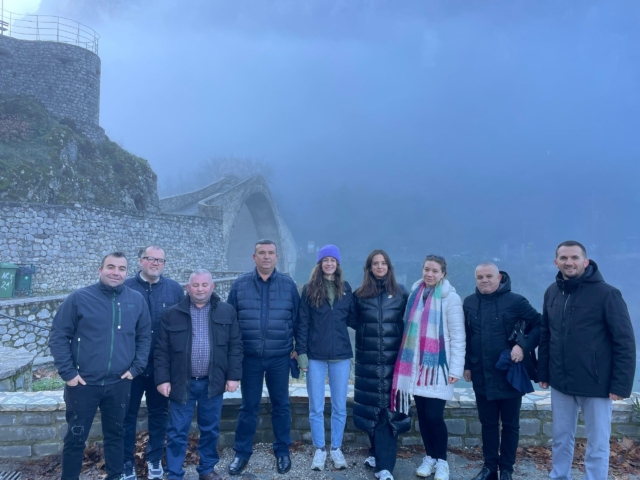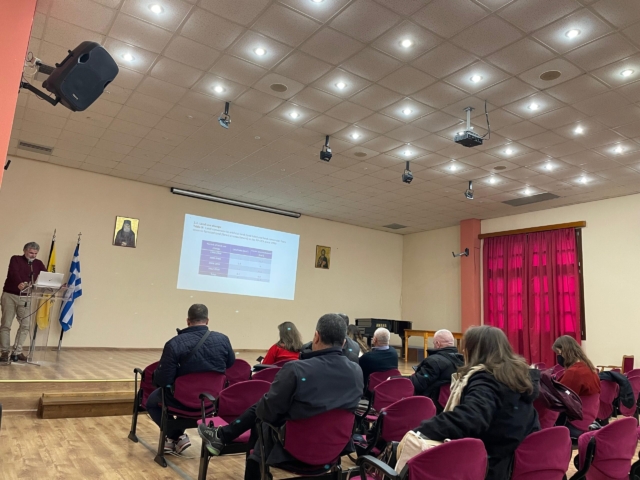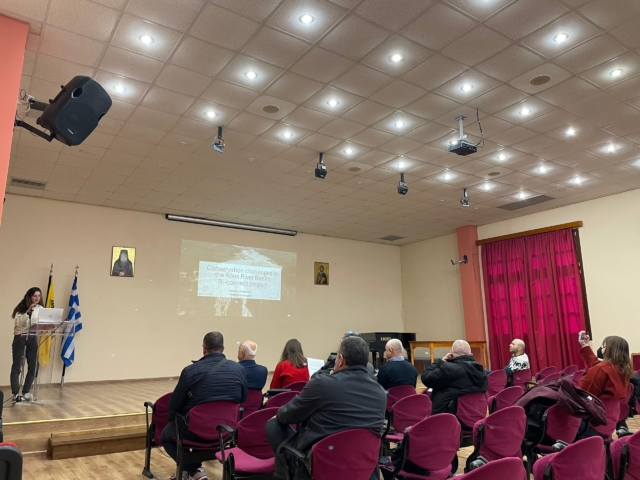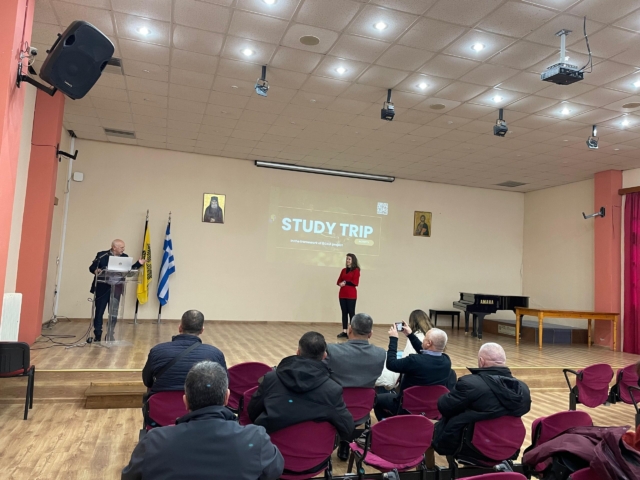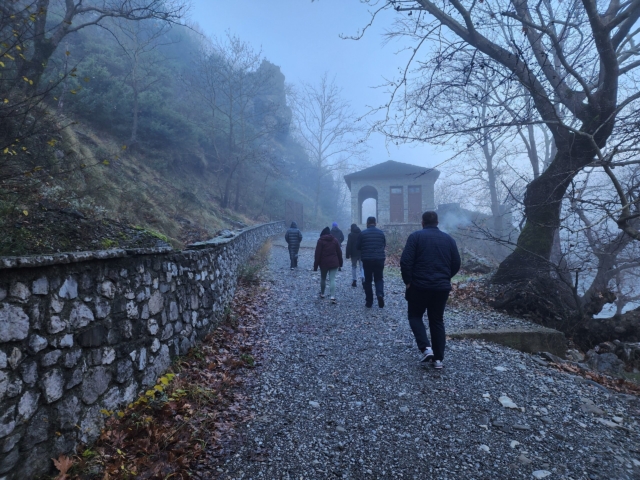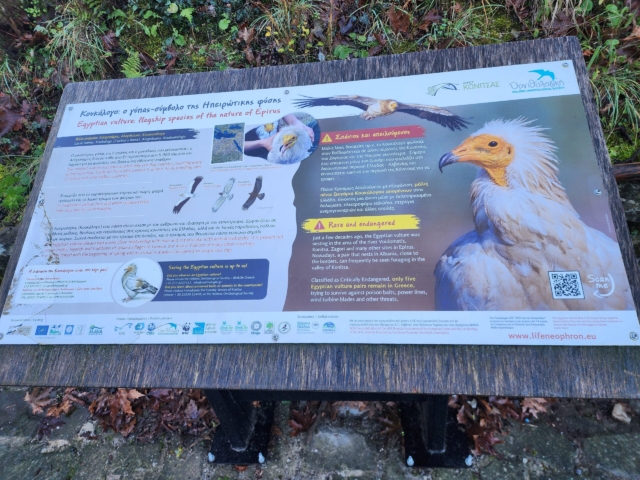In a significant step toward strengthening cross-border collaboration in ecological conservation, stakeholders from Albania and Greece convened in Konitsa, Greece, for a two-day study visit at the end of December 2024 – part of the project “Improve Sustainability of South-Eastern Connectivity Conservation Areas in Albania,” centered on the ecological corridor spanning Polis-Valamarë-Rungajë-Moravë-Gramoz.
Participants included representatives from Albanian municipalities (Prrenjas, Librazhd, Gramsh, and Elbasan Prefecture), the nonprofit organization Korça Alpin, and the local business Gramshi-Turistik. On the Greek side, the delegation featured the Municipality of Konitsa, represented by Mayor Andreas Papaspirou, nature conservation researcher Dr. Haritakis Papaioannou, and businesses such as NO LIMITS, represented by Mr. Nikos Kyritsis.
The visit started with a series of presentations highlighting ongoing conservation efforts. The Albanian project highlighted its strategies for enhancing the sustainability of connectivity conservation areas. MedINA, a Greek organisation, introduced the “Ri-Connect project”, focusing on the Aoos River basin. Meanwhile, Dr. Papaioannou emphasised the ecological importance of the Pindos-Prespes Conservation Connectivity Area (CCA), drawing attention to the shared challenges of the unauthorised hydropower development, illegal hunting, and varying conservation statuses across borders—such as Albania’s designation of the Vjosa River as a National Park.
A common thread running through these discussions: the pressing need for greater collaboration within nations and across borders, given the transboundary nature of ecological corridors.
The introduction of the “Let it Flow!” project presented to participants an innovative strategy for engaging younger generations through role-play and games to value the wild rivers and natural ecosystems. This interactive approach, which emphasises collaboration among local stakeholders, has the potential to be replicated for other river systems.
The participants learned more on “MapStream”, which highlighted efforts to protect the Sarantaporos River and its tributaries by restoring or replacing outdated barriers. These actions aim to facilitate biodiversity conservation and support the designation of the Sarantaporos area as a protected zone, underscoring the critical role of river systems in regional ecology.
Participants had the opportunity to explore the Profitis Ilias Mountain in Konitsa, gaining firsthand insight into the interconnectedness of ecological corridors. This region plays a pivotal role in the reproduction of species such as the wild goat (Rupicapra rupicapra) and possibly the Balkan lynx. On the second day, the group visited the historic Konitsa Bridge and Northern Pindos National Park. These iconic landmarks reinforced the shared responsibility of preserving natural networks and managing resources sustainably to safeguard biodiversity.
This study visit extended beyond the exchange of knowledge; it was a demonstration of the power of partnership. By uniting efforts, Albania and Greece are setting a benchmark for regional cooperation in conserving biodiversity, fostering sustainable development, and ensuring the resilience of their shared ecological heritage.


